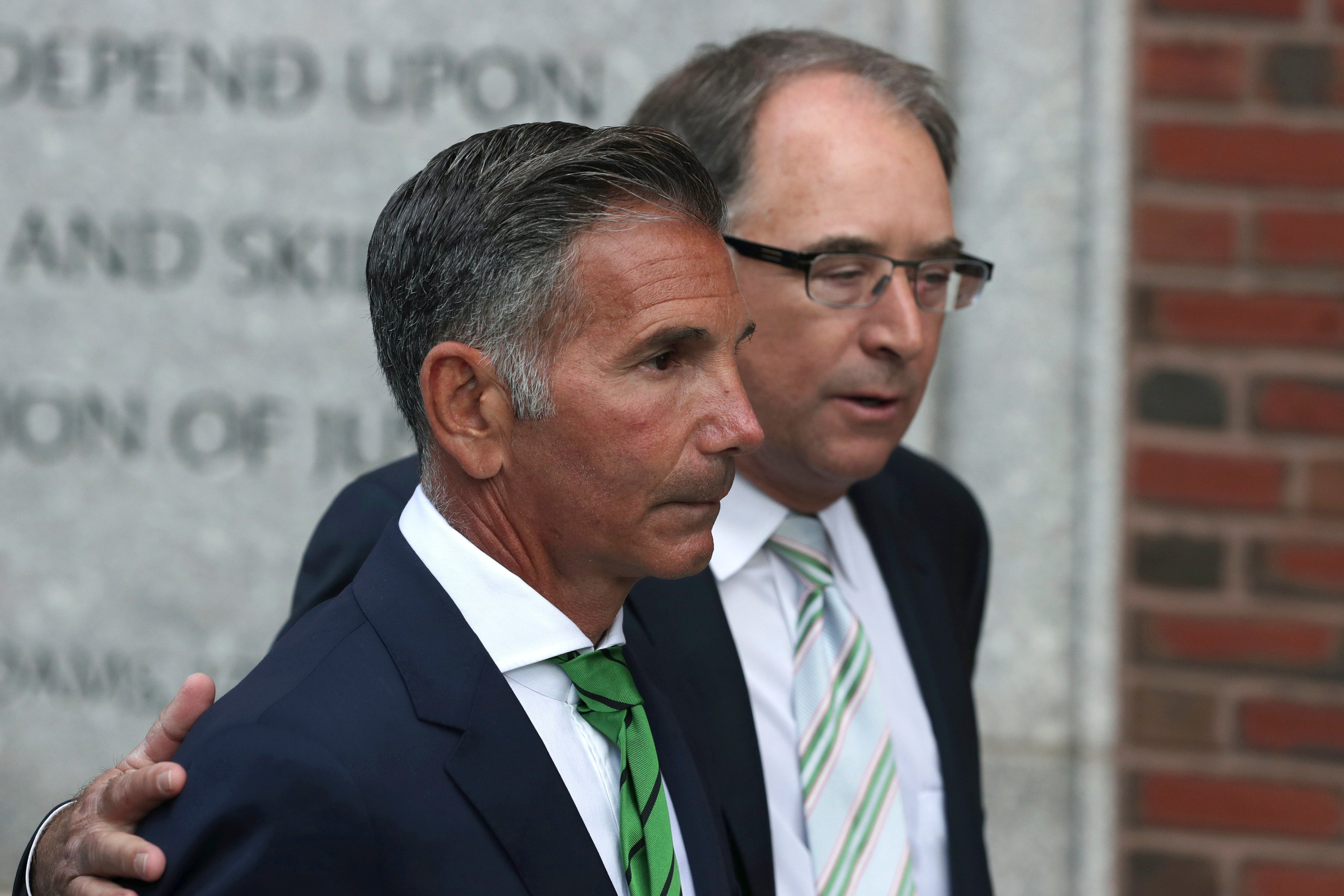Mossimo Giannulli loses bid to finish prison term at home
A federal judge has denied fashion designer Mossimo Giannulli’s request to serve the remaining three months of his prison term in the college admissions bribery scheme at home

Fashion designer Mossimo Giannulli’s request to serve the remaining three months of his prison term in the college admissions bribery scheme at home was denied Tuesday by a federal judge
Giannulli argued he should be released to home confinement for the rest of his five-month sentence because he spent eight weeks under “extreme” conditions in solitary confinement due to the coronavirus pandemic after reporting to prison in November.
But U.S. District Judge Nathaniel Gorton said Giannulli failed to demonstrate an “'extraordinary and compelling' reason warranting his release," though he noted that the quarantine was “longer than anticipated.”
An email seeking comment was sent to lawyers for Giannulli.
Giannulli, who reported to prison on Nov. 19, believed he would only be held in quarantine for a short time before testing negative for the coronavirus, his lawyers said in court documents. Instead, he spent 56 days isolated in a small cell at California’s USP Lompoc before being transferred to a minimum security camp on Jan. 13, they said.
“Mr. Giannulli spent almost 40% of his total sentence confined in solitary quarantine, despite testing negative for COVID-19 at least ten times and despite his counsel’s multiple requests that (the Bureau of Prisons) release him from quarantine,” his lawyers wrote in a motion filed earlier this month.
“The toll on Mr. Giannulli’s mental, physical, and emotional well-being has been significant,” they wrote.
All incoming federal inmates are held in quarantine for 14 days to limit the spread of the virus. Giannulli's quarantine was supposed to end on Dec. 7, but on that day, several other inmates in his quarantine unit tested positive for the virus, the judge wrote. Soon after, Giannulli reported a headache and lost his sense of smell, so officials extended his quarantine, the judge wrote.
Giannulli is scheduled to be released on April 17. His wife, “Full House” star Lori Loughlin, was released last month after spending two months behind bars at a federal lockup in Dublin, California. Loughlin’s attorneys and prosecutors agreed that she could start her sentence early and Loughlin promised that she would not seek early release on pandemic-related grounds.
Loughlin and Giannulli pleaded guilty in May to paying half a million dollars to get their two daughters into the University of Southern California as crew recruits even though neither girl was a rower.
They are among nearly 60 parents, coaches and others charged in the case, which federal prosecutors dubbed “Operation Varsity Blues.” It uncovered hefty bribes to get undeserving kids into college with rigged test scores or fake athletic credentials.
Loughlin and Giannulli had insisted for more than a year that they believed their payments were “legitimate donations” and accused prosecutors of hiding crucial evidence that could prove the couple’s innocence because it would undermine their case.
Prosecutors said Giannulli deserved a tougher sentence because he was “the more active participant in the scheme,” while Loughlin “took a less active role, but was nonetheless fully complicit.”
Bookmark popover
Removed from bookmarks